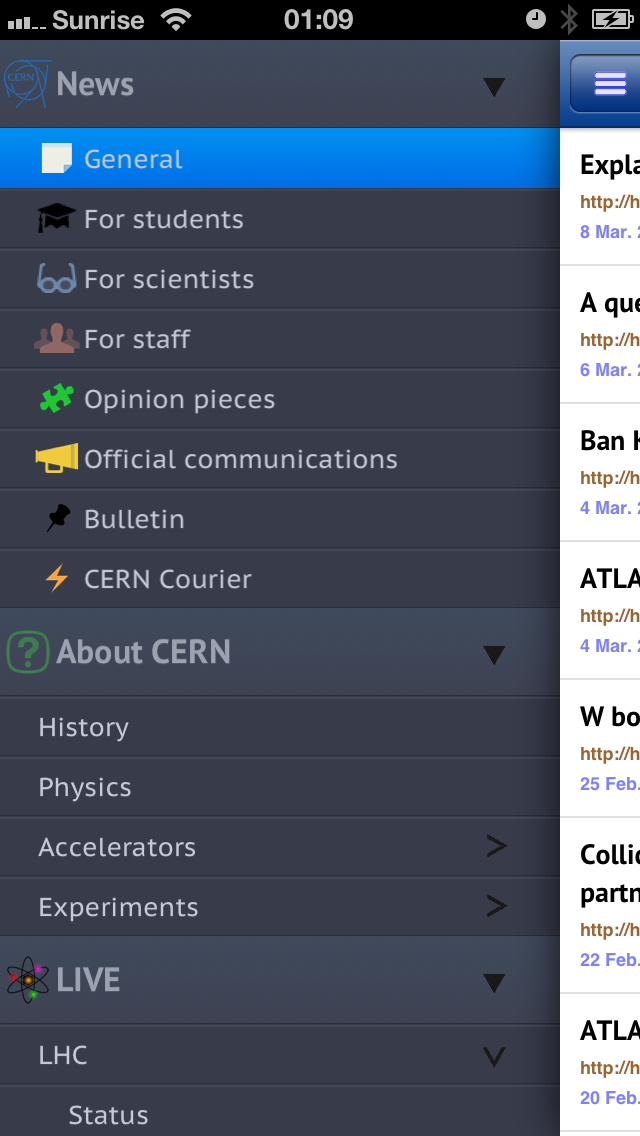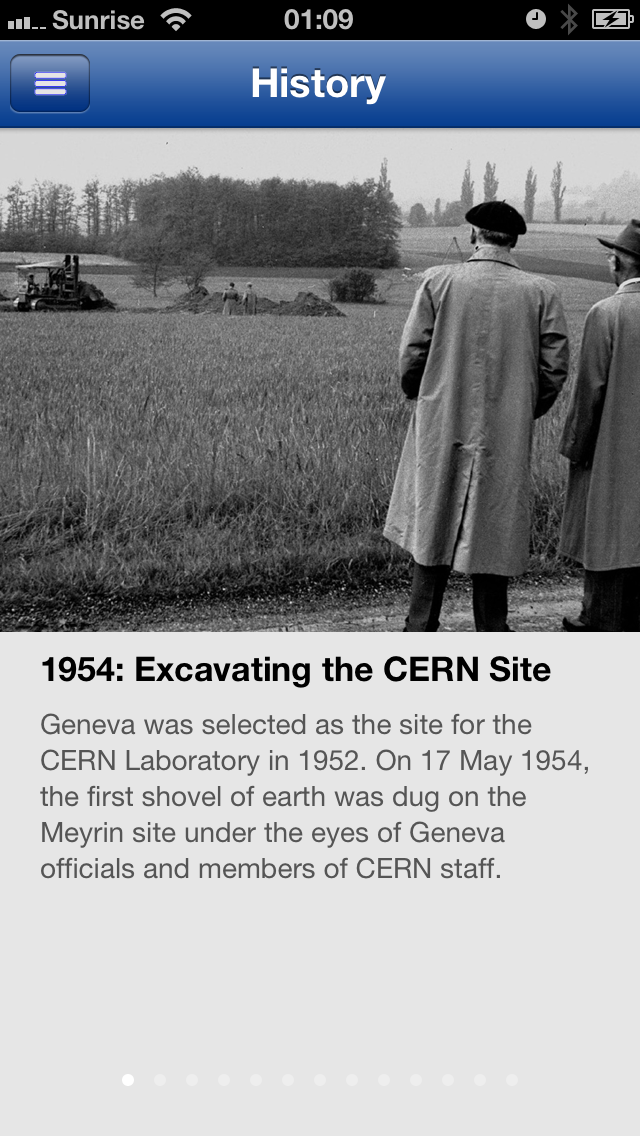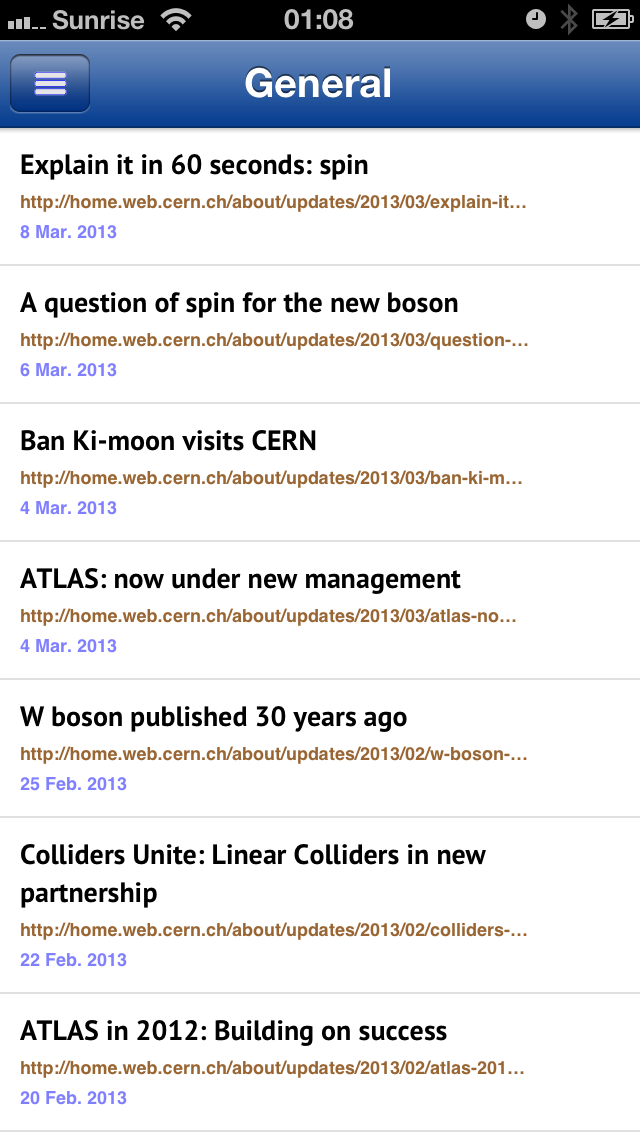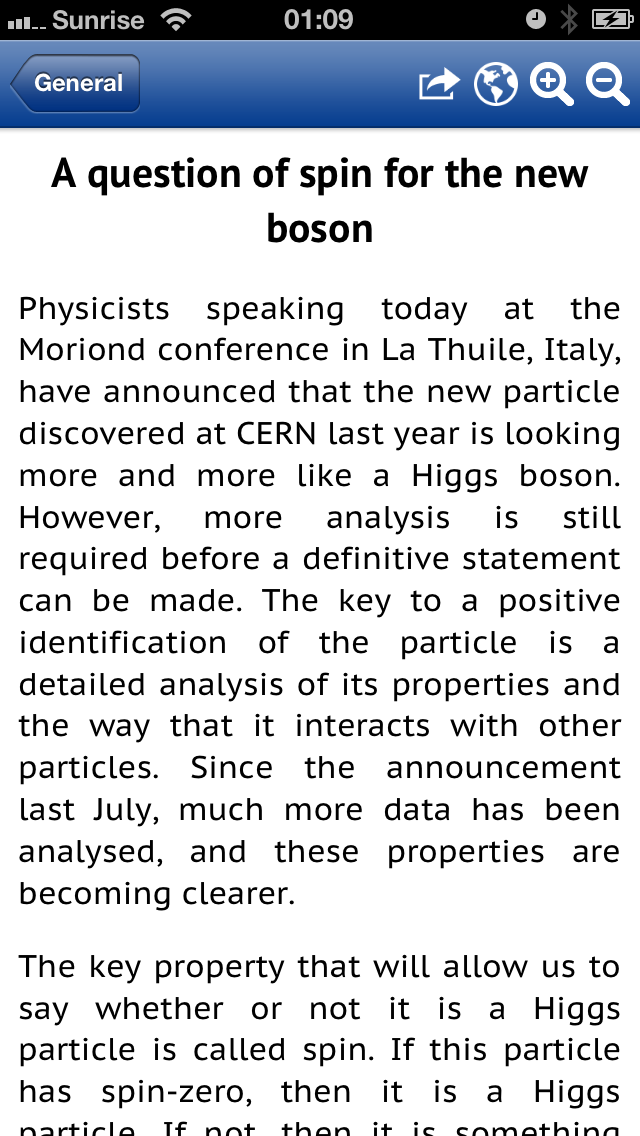A new iOS application for CERN
The SFT and the Education Group at CERN are joining forces and present a new iOS application for CERN. The application gives to the users real time information on the status of the LHC and live displays of LHC events from the four experiments: ALICE, ATLAS, CMS and LHCb. The team that is currently developing this application is planning to include information about all the CERN experiments in order to give users the full experience of scientific research.
Fons Rademakers originally had the idea of a CERN iPhone app from the moment iPhones became popular, about 4 years ago, and the first native API was released by Apple. He thought that CERN as technology leader should have an early presence. However, after asking around, there turned out not to be too much interests and the main idea was to do everything via web interfaces. At that point he set out to design a basic app by himself but “never got around doing it due to my full time occupation of running the ROOT project”.
Last year we had the chance to get a student via the Google Summer of Code (GSoC) project to work on a CERN app. Fons says: “This student, Eamon Ford, created a nice first prototype, that showed potential. After Eamon's 3 month contract finished, we took it over in SFT, where by that time Timur Pocheptsov had become quite fluent in the Apple technologies of Xcode, Objective-C, Cocoa and Cocoa Touch as he had just finished an iPad version of ROOT. Timur basically redesigned and rewrote Eamon's prototype from the bottom up to the version we have now ready for release to the Apple App Store.”

The CERN app aggregates public CERN content available via many different web sites. There are categories for CERN news (for general public, users, students, staff), CERN bulletin, CERN courier.
There is a category describing CERN's history, accelerators, physics, and experiments that is based on the CERN card deck that was designed by the PH-EDU group. The category called "LIVE", shows live data from the experiments and the LHC while there is also a category that gathers photos, videos and webcasts. Finally one could look for miscellaneous information like job openings from HR in the last category that appears in the current version of this application.


Screenshots of the category of "History" that presents the history of CERN and the "General" category displaying news from CERN and all the experiments. There are more categories offering a full CERN-experience while more categories can be easily added thanks to a special design.
As for the future, Fons Rademakers says: “We plan to work with the Open Day organization team to add a category for Open Day events and tours. We would also like to add stuff, like small Monte Carlo generator examples, 3D interactive event displays, etc. These things will be for a v2 or v3 future release.”
The app is designed in a way that allows to easily add more categories. The Readability service (http://www.readability.com) is used to cleanup most web pages we display to show only the essential text and not the navigation bars and other non-essential items. This hugely improves the reading experience on small devices.

Get CERN news on your iOS device. The new application was designed to enhance the reading experience offered to the users.
Currently the CERN app is in beta and anybody interested in trying it out should send a mail to cern-app@cern.ch. Fons and his team are still working with IT on a caching web server infrastructure so that most data will be retrieved from a cache and not by hitting the many individual web servers, that typically are not designed for the potential traffic when 100 of thousand iPhone users will start using the app on the day that CERN will announce the next big discovery. Fons adds: “We hope to release to the app store within the next two months”.
The application will be submitted to Apple for distribution through iTunes and the apple store but first it has to work through CERN’s approval process. This summer, the group is also planning to get a Google Summer of Code student to work on the Android version of this application. In the future the same application could be used for implementing Co-Pilot and allow CERN to utilize the computing resources of thousands of mobile phones across the globe for the computation of experiments.
